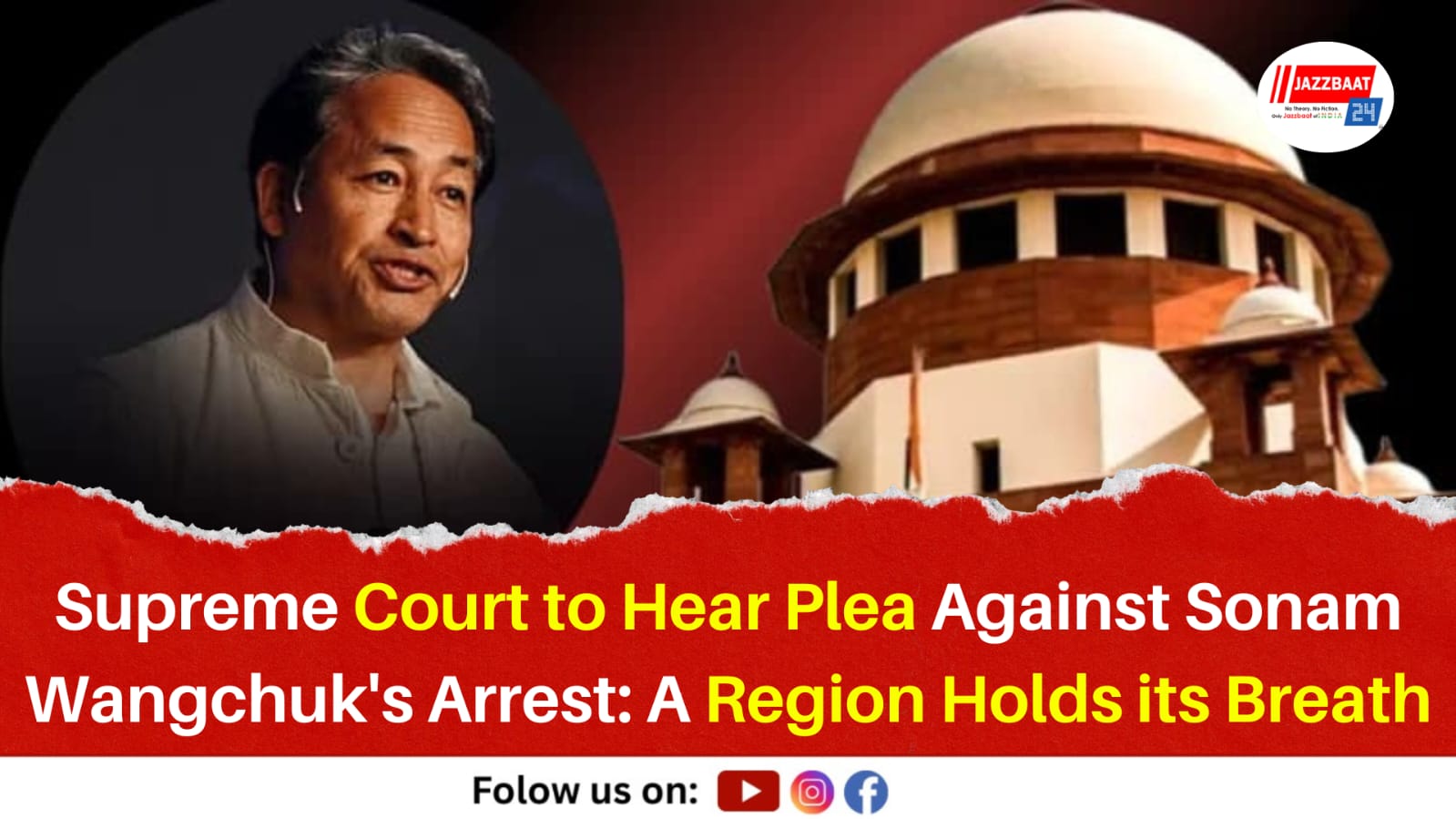The arrest of noted Ladakhi environmentalist and reformer Sonam Wangchuk has sparked nationwide debate and outrage. Once celebrated for his innovations in sustainable education and climate activism, Wangchuk now finds himself at the center of a political storm accused of inciting unrest in Ladakh’s ongoing movement for statehood. Today, the Supreme Court of India will hear a petition challenging the legality of his arrest.
On September 26, police detained Wangchuk in Leh after protests demanding the restoration of Ladakh’s statehood and constitutional safeguards under the Sixth Schedule turned violent. What began as a peaceful demonstration spiraled into chaos four people were killed and dozens injured in clashes between protesters and security forces.
Authorities allege that Wangchuk, during one of his speeches, encouraged “self-immolation” as a form of protest, calling his remarks provocative and dangerous to public order. He has since been booked under the National Security Act (NSA) and placed in preventive detention.
On October 2, Wangchuk’s wife filed a habeas corpus petition in the Supreme Court, arguing that his arrest was unlawful and violated his fundamental rights. The plea contends that he was detained without concrete evidence and that the government is attempting to silence peaceful dissent.
The Supreme Court is set to hear the matter today. If the court finds the detention unjustified, it may order his immediate release; otherwise, his custody could be extended further.
The Leh administration maintains that Wangchuk’s speeches “posed a threat to peace and security” and directly contributed to the recent violence. Police reports claim that agitators even set fire to a local BJP office during the unrest. Officials have defended the use of the NSA, describing it as “a preventive step to avoid further escalation.”
Wangchuk’s supporters insist that he has always stood for non-violence. Several human rights organizations and student groups have condemned his arrest as politically motivated. On social media,
the hashtag #StandWithSonamWangchuk has gone viral, with activists, academics, and citizens expressing solidarity.
Even from detention, Wangchuk sent a message urging calm among his followers:
“Ladakh’s struggle must remain peaceful. Our strength lies in truth, compassion, and unity not in violence.”
Sonam Wangchuk is more than an activist he is a symbol of the region’s aspirations and resilience. His innovations like the Ice Stupa project and his work promoting solar energy and local education have earned him global recognition. His arrest, therefore, has struck an emotional chord across the region.
As the Supreme Court begins its hearing today, the people of Ladakh and indeed the entire country wait anxiously. The verdict will not only determine the fate of one man but could also shape the future of Ladakh’s political and social movement for years to come.
